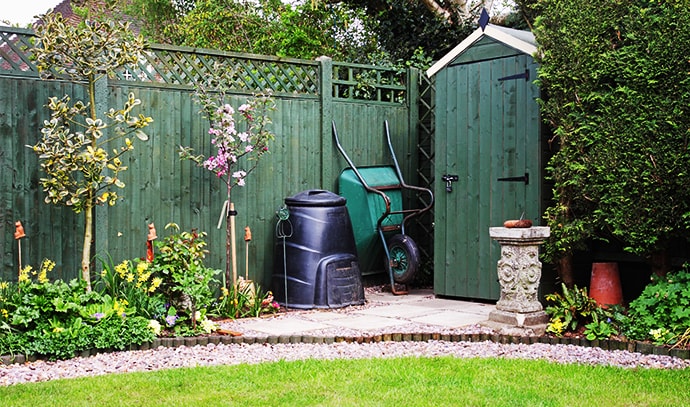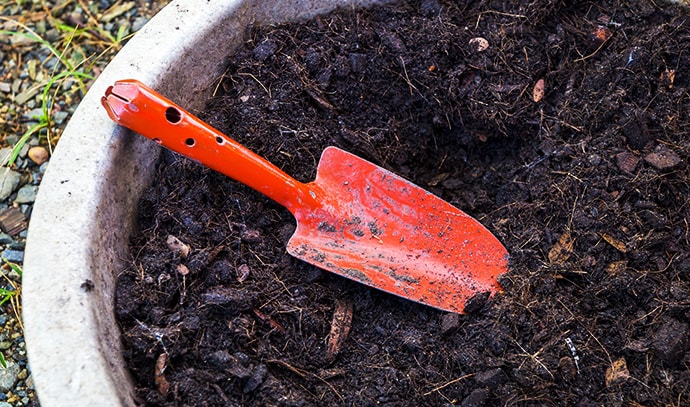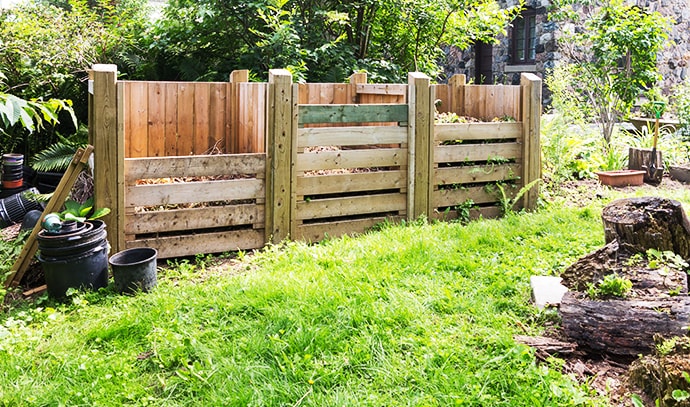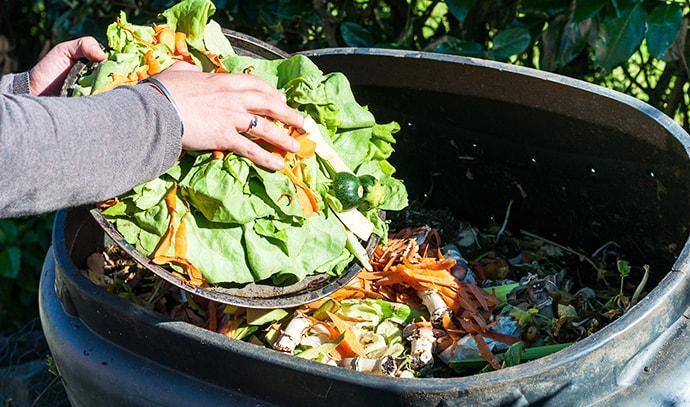Top tips for making compost
- Improve soil quality and garden vitality by releasing the rich nutrients in the compost into the soil of your garden
- Prevent greenhouse gas emissions by encouraging the aerobic breakdown of organic material and reduces the amount of garden and kitchen waste going to Landfill
- Recycle valuable nutrients and reduce the use of artificial fertilisers
- Save money!
 A composting system confines the organic material and often controls the conditions in the material so that the breakdown is accelerated. A composting system can be started in old garbage bins, wooden boxes, or in a simple heap.
Composting organisms require four equally important components to work effectively:
A composting system confines the organic material and often controls the conditions in the material so that the breakdown is accelerated. A composting system can be started in old garbage bins, wooden boxes, or in a simple heap.
Composting organisms require four equally important components to work effectively:
1. Nitrogen (Green ingredients):
Supply your pile with nitrogen which grow and reproduce organisms to oxidise the carbon. These additions are often green and wet: kitchen scraps, fresh lawn clippings, weeds pulled from your garden. Every pile needs the green ingredients, but if all you have is green stuff, your pile can turn stinky and mucky. Too much green stuff can lead to a rotting pile instead of a composting pile.
2. Carbon: (Brown ingredients):
Supply your pile with carbon for energy (heat). These items are often brown and drier--fall leaves, branches, hedge clippings, straw, etc. The carbon is very necessary but again, too much has its consequences. If you have a pile with mostly prunings from your hedge and other woody stuff, the pile can take years to break down. It can sit there and linger in your back yard and you may begin to make plans to will your compost to your grandchildren.
3. Oxygen,
For oxidizing the carbon, facilitating the decomposition process. Done by regularly turning the mixture.
HINT: If your compost becomes starved of oxygen, then it starts to produce greenhouse gases - so it's important to get air into your compost heap, for example by turning it regularly.

4. Water:
Mixture should be moist, but not soaking wet to maintain activity without causing anaerobic conditions
HINT: Make sure your material is cut into a small particle size as smaller particles break down more rapidly
Finally, the addition of some soil will encourage the introduction of composting microorganisms which facilitate the breakdown of the material.Top tips for making garden compost:
Choose a Site: Place your compost heap or bin in a well-drained area that has some shade. Too much sun will dry out your compost. What to Compost:- Green Ingredients: Compost needs a mixture of nitrogen rich organic materials such as fruit and vegetable peelings, and green garden vegetation such as fresh grass clippings and green leaves.
- Brown Ingredients: Nitrogen-poor, carbon rich materials such as dry leaves, woody twigs, paper and straw.
- Water
- Some soil or completed compost to introduce composting micro-organisms
 Layering:
Start with a thick layer of coarse material (~15cm), such as twigs or mulch, this is used for drainage. Then follow with a layered A,B,C system using the materials above A. Garden clippings and kitchen scraps, B. Dry leaves and paper (wet). C. Add water after each layer to keep the heap moist but not wet. Then repeat steps ABC. Finish with step D. Sprinkling soil or finished compost on top of food scraps will make a richer compost and help reduce odours.
Maintaining Your Compost:
Keep your compost well aerated to prevent foul odours or methane. Turn your compost with a garden fork on a weeky basis. Otherwise place garden stakes or pipes through the heap to allow air in.
Depending on the mix of ingredients the duration for the compost to turn into a rich soil can be anything from 6 weeks to 6 months.
Layering:
Start with a thick layer of coarse material (~15cm), such as twigs or mulch, this is used for drainage. Then follow with a layered A,B,C system using the materials above A. Garden clippings and kitchen scraps, B. Dry leaves and paper (wet). C. Add water after each layer to keep the heap moist but not wet. Then repeat steps ABC. Finish with step D. Sprinkling soil or finished compost on top of food scraps will make a richer compost and help reduce odours.
Maintaining Your Compost:
Keep your compost well aerated to prevent foul odours or methane. Turn your compost with a garden fork on a weeky basis. Otherwise place garden stakes or pipes through the heap to allow air in.
Depending on the mix of ingredients the duration for the compost to turn into a rich soil can be anything from 6 weeks to 6 months.
HINT: Cover your heap so that it is just moist, not wet. If it is wet or saturated mix more dry brown material through it and turn.

What’s acceptable to compost:
- Fruit and vegetable scraps
- Grass clippings, leaves, bark and twigs
- Shredded/mulched pruned trees and shrubs
- Sawdust, tea leaves, tea bags and coffee grounds
- Egg shells, hair, wool and vacuum cleaner dust
- Ash from a wood burning fire (not coal)
- Cotton rags, newspaper, tissues, and serviettes (torn up)
- Breadcrumbs
Not Acceptable to Compost:
- Fats
- Whole bones
- Large branches
- Meat
- Plastics
- Metals
- Dairy Products
- Chemicals
- Pet excrement



